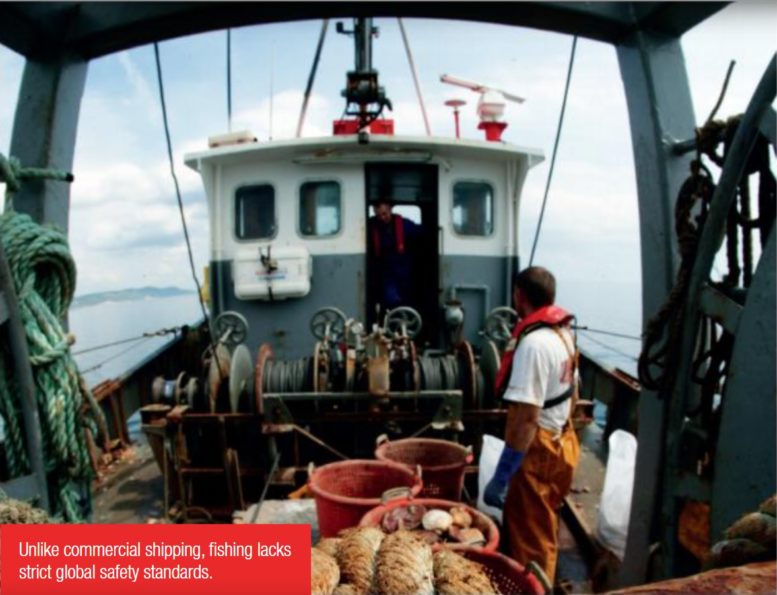When it comes to fishing vessel safety, the mission is clear, says Sandra Allnutt of the International Maritime Organization (IMO): enhance safety to save lives.
“We want to reduce loss of life in one of the most dangerous professions in the world, and we want to enhance safety on board fishing vessels,” said Ms Allnutt, Head of Maritime Technology in IMO’s Maritime Safety Division, following a regional seminar, in Cape Town, South Africa, to promote ratification and implementation of a key fishing vessel safety treaty known as the Cape Town Agreement of 2012.
“This Agreement, once fully ratified, in force and implemented, will be an internationally binding agreement which will facilitate better control of fishing vessel safety by flag, port and coastal States. It will also contribute to the fight against illegal, unregulated and unreported (IUU) fishing,” Ms Allnutt said.
The Cape Town Agreement was adopted at an international conference held in South Africa in 2012, as a means to bring into effect the provisions of the 1977 Torremolinos International Convention for the Safety of Fishing Vessels, which was later modified by the 1993 Torremolinos Protocol.
In ratifying the 2012 Agreement, Parties agree to amendments to the provisions of the 1993 Protocol, so that they can come into force as soon as possible thereafter. The treaty will enter into force 12 months after at least 22 States, with an aggregate 3,600 fishing vessels of at least 24 meters long, operating on the high seas, have expressed their consent to be bound by it.
To date, 7 countries have ratified the Cape Town Agreement: Congo, Denmark, Germany, Iceland, Netherlands, Norway and South Africa. Between them, there is an aggregate of 884 fishing vessels, at least 24 meters long, operating on the high seas.
International treaties such as the International Convention for the Safety of Life at Sea (SOLAS) have been in force for decades for the commercial shipping industry, including cargo and passenger ships.
However, the key instrument applicable to fishing vessels is still not in force. This means there are no mandatory international requirements for stability and associated seaworthiness, life saving appliances, communications equipment or fire protection, as well as fishing vessel construction.
“Implementation of the fishing vessel safety provisions is long overdue,” Ms Allnutt said. “So we have been running a series of seminars around the world to explain what the Cape Town Agreement is, why it is important, how it can be implemented into national legislation and what the next steps are for a Party to the Agreement.”
The Cape Town Regional Seminar (16 – 20 October 2017) was attended by participants from 10 countries in the Africa Anglophone region. It followed similar events, organized by IMO in cooperation with the Food and Agriculture Organization (FAO), including, in the Cook Islands (28 August – 1 September 2017), for 10 countries in the Pacific region; in Côte d’Ivoire (December 2016), for 12 countries from the Africa Francophone region; in Indonesia (April 2015), for 11 countries from the East Asia region; in Belize (October 2014), for 13 countries in the Caribbean; and in Peru (June 2014), for 12 countries in Latin America.
